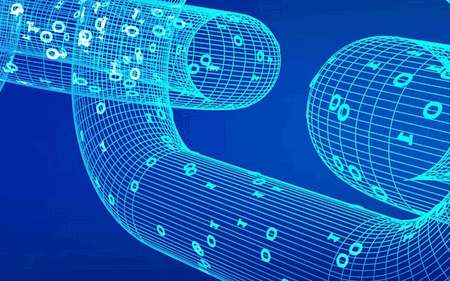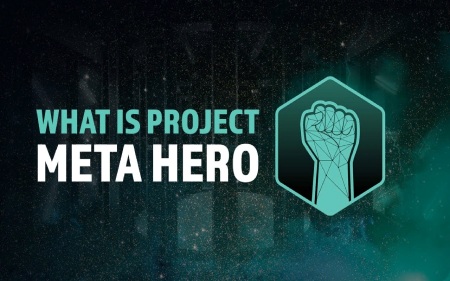Reviews from traders about blockchain technology.

Experts argue that the widespread use of blockchain technology will lead to significant changes in the information-based world. The explanation is quite simple: decentralized data storage allows people to protect themselves from unauthorized changes, for example, breaking, forging or any other unwanted control. The technology does not require intermediaries (financial institutions, payment systems) for any data transfer operations. All information is transmitted using the peer-2-peer protocol, that is, directly from one user to another.
Blockchain is capable to secure any operations which have risk that of one of participants will refuse to perform transaction obligations. That is why the list of spheres in which the blockchain technology is continuously growing. Blockchain can be used:
- when conducting financial transactions;
- at the conclusion of contracts and agreements;
- in the course of various commercial transactions;
- when purchasing goods and services;
- when exchanging confidential information;
- to register insurance policies;
- to protect property rights as well as transfer them to a new owner;
- personal data management;
- to ensure the security of intellectual property;
- creating archives of documents.
How blockchain works - 5 steps
Below is an algorithm how the blocking technology functions as exemplified in cryptocurrencies operations. In fact, digital money is only a block of information so the principle can be applied to any operations based on blockchain technology.

Stage number 1. Transfer of a transaction decision to the network
The owner of the Bitcoin wallet makes a decision to pay for a certain commodity transferring the funds to the online store account. After making a decision, information about it is transferred to a network that consists of a large number of blocks.
Stage number 2. Receiving a transaction by the P2P network
Transaction in connection with special algorithms is transferred to the computer network. After that, the cryptographic encryption of the received information starts automatically and forms a separate unique link. This block necessarily contains a reference to the previous block as well as a timestamp.
Stage number 3. Validation procedure
Information on the link created at the previous stage is sent for the purpose of checking all nodes included in the system. Each of them puts the received information into the available information base. The chain is being updated; at the same time, the updates are moved in the general register.
Stage number 4. Confirmation of the operation and a new information link
As soon as everything is confirmed, the new information link occupies its own unique place in the blockchain. From this moment the block acts as a full part of the chain. Each participant in the chain can receive transaction data but the information contained in the link is available only to those who have a password for it.
Stage number 5. Addition to the chain by a block
At the last stage, the recipient of the operation receives the transferred cryptocurrency to their wallet. Confirmation is carried out by both parties of the transaction.
Advantages of blockchain technology

Advantage 1. There is no central server
Blockchain is a qualitatively new way of storing important information. Data is stored in a decentralized way in the blockchain system, there is no single repository. Due to this, information cannot be monitored.
To change even one block of information you will need unrealistically huge capacities. The information is stored on all devices connected to the network at the same time. Therefore, they remain practically invulnerable. Before the advent of the new technology, absolutely all information was stored on servers, including data on cash transactions, sales transactions, any other actions.
Advantage 2. High speed and accuracy of operations
The lack of centralization and the built-in protection against unauthorized access help to carry out operations with high speed and accuracy refusing the services of intermediaries (banking organizations, payment systems, notaries, exchangers). Authenticity of conducted operations is checked and confirmed by the network participants themselves.
Smart contracts are based exactly on such principles. They are executed only if certain conditions are met. It is impossible to break such an agreement or to change its conditions post factum. In contrast, traditional contracts establish the obligations of the parties, the conditions of execution as well as the consequences of their non-compliance. At the same time, the traditional contract is always associated with the risk that someone will violate the conditions.
Advantage 3. Transparency of conducted operations
The blockchain network is in a state of continuous monitoring. This means that it periodically checks itself. Digital system auditing is used for this purpose. Moreover, absolutely all information contained within the system remains transparent, data on all transactions are available to all participants.
Advantage 4. A complete copy of the information database is kept by each participant of the system
Each user of the system has a copy of the information database on their computer, which is updated regularly. Therefore, network members do not have to reconcile data with each other. Once a new operation is added to the blockchain, this is confirmed by each user. In this case, it is impossible to change not only a single block but also their sequence. Access to a specific information link is open provided there is a key that is only available to the person it belongs.
Advantage 5. Encryption of information
Information which forms the link is automatically encrypted. Cryptography provides complete protection of stored information. Thanks to hashing in blockchain, the entire chain of operations remains unchanged. Lastly, digital signatures as well as personal keys of two types protect data inside the link from unauthorized access.
It is impossible to create business applications on the blockchain principles without specialized platforms. Below is an overview of the most reliable and popular ones.
- Emc SSH - its main task is the administration of Internet networks. The platform allows provide global control of the network regardless of how far apart its individual components are.
- Emc TTS is a platform that offers a technology for capturing a variety of documents. It is especially useful in solving legal issues as well as in cases involving copyright.
- Emc SSL - is an extension of the custom SSL protocol. Blockchain, developed on this platform, is a way of storing digital fingerprints that belong to individual users and companies.
Blockchain Technology Group develops application software. It offers applications for actual time search, data analysis, access of data, time risk evaluation and to determine the pending transactions.
Is it realistic to know all the subtleties and possibilities of blockchain? No. 99.9% of the world's population does not need this. It is more important to understand the very principle of technology and the way it is arranged.
You can also familiarize yourself with fraudulent brokers.





Post a Comment